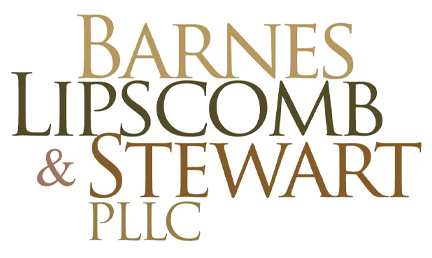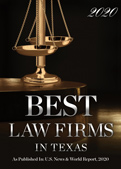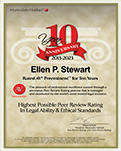Estate Tax Planning in Texas
Serving Clients & Their Families in Austin, TX and Throughout Travis County
How about some more good news for a change?
The unified lifetime gift and estate tax exemption rose to $11,200,000 per individual in 2018, as part of the Tax Cuts and Jobs Act of 2017 (TCJA 2017) signed into law by President Trump on December 22, 2017. The law took effect on January 1, 2018. The “portability” provision that allows couples to count one another’s unused federal estate and gift tax exemption remains in effect.
Is a check-up with an estate planning attorney about as much fun as a visit to the dentist?
No. It's MORE fun!
A regular visit with Barnes Lipscomb & Stewart PLLC helps ensure that your estate plan will still work as originally designed and provides an opportunity to make any needed course corrections based on your present situation, your future goals, and whatever tax law is currently in place. No drilling required! Barnes Lipscomb & Stewart PLLC will have a checklist of items to review about your estate plan, but you can ask about these:
What is portability and why do I want it?
Back in January 2013, Congress passed the American Tax Relief Act of 2012 ("ATRA"), and President Obama signed the bill into law that same month. One important part of ATRA was to permanently implement the "portability" of the applicable exemption amount between spouses, as originally enacted by the Tax Relief, Unemployment Insurance Reauthorization, and Job Creation Act of 2010. Be sure to ask your estate planning attorney about these portability provisions. You may have to draft a new will and amend your existing revocable living trust plans. You need to do this prior to your death or your surviving spouse may be limited by your existing estate plan.
Do I need a Roth IRA?
When it comes to estate planning, Roth IRAs provide one huge advantage over other tax-favored retirement accounts. If you die, your heirs can dip into an inherited Roth account without owing any federal income tax, as long as the account has been open for more than five years! So open a Roth account now to start that five-year clock ticking. Should federal income tax rates go up in the future (you never know!), funds in your Roth IRA will be unaffected. As an added bonus, a Roth IRA in your name is exempt from the required minimum distribution (RMD) rules. These rules usually require you to begin taking taxable withdrawals from other types of tax-favored retirement accounts — like traditional IRAs — after reaching age 70½. With those accounts, fail to withdraw the proper RMD amount for a year and you will owe Uncle Sam a 50% penalty on the difference between the amount you should have taken out and what you actually took out (if anything). However, with a Roth IRA, you can keep the balance undisturbed for as long as you want and continue to earn federal-income-tax-free income and gains. When you pass on, your Roth IRA balances can be left to your heirs. They are then allowed to withdraw the money federal income tax free.
And?
You can take advantage of salary reduction contributions to a tax-favored employee benefit account to reduce your taxable income, as well as your federal and state income taxes. [For 2018, the maximum salary reduction contribution to a company 401(k) plan this year is $18,500 ($24,500 if you will be age 50 or older by the end of 2018).]
Anything else?
To decrease your tax liability, consider one of a number of gifting strategies to shift assets to your children or a charity without tax consequences. The annual gift exclusion is now $15,000 for 2018, up from $14,000 in 2017, which means that you can give $15,000 per individual ($30,000 per married couple) to as many people as you desire without impacting your lifetime exemption.
You also can front-load your 529 college savings plan accounts for children/grandchildren. These accounts can be front-loaded with five years' worth of annual exclusion gifts at one time without incurring any taxable gift. This, in essence, removes these funds and future income taxes on them from your estate, and the earnings in these accounts will grow tax-deferred. Provided the distributions are used for qualified higher education expenses, they are also federal income tax free!
What are you waiting for ... a call from your dentist?
If you have not created a comprehensive estate plan and evaluated the impact of various taxes on your estate, then you need to speak with the experienced estate planning attorneys at Barnes Lipscomb & Stewart PLLC sooner rather than later.
















